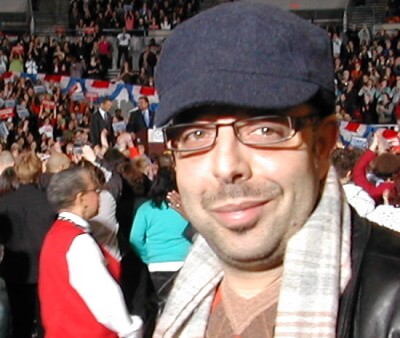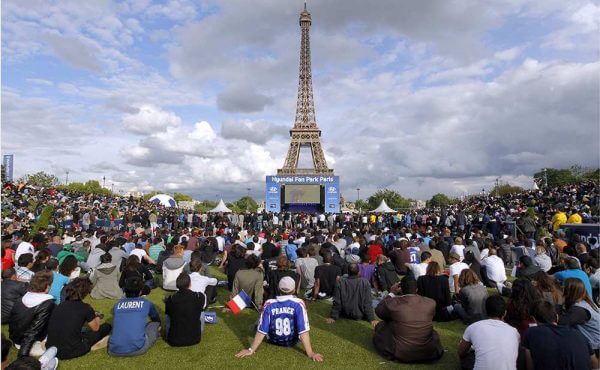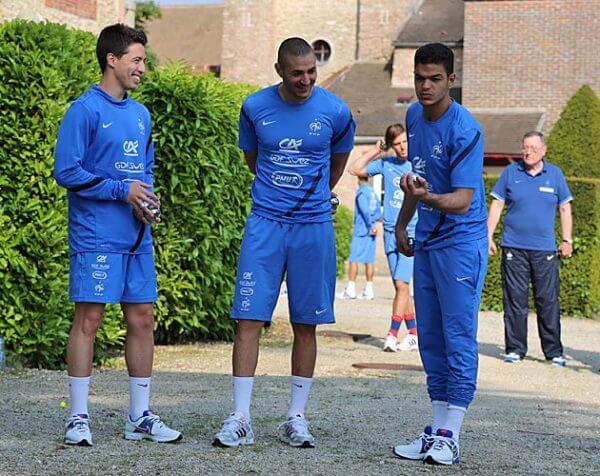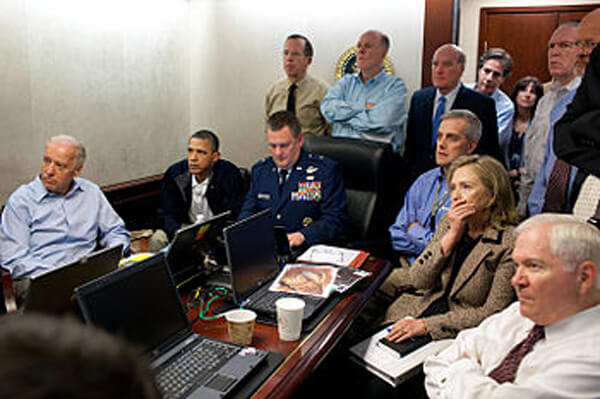UEFA Euro 2016: Fraternity, Unity and Diversity. France’s squad footballers cultural and ethnic origin, particularly for second and third generation football stars immigrants are victims of institutionalized racism.
By Abdennour Toumi

The UEFA Euro 2016 championship edition is one of world soccer’s most watched events. France is the hosting country and the most favored to win the tournament. In fact, France’s post-November Paris attacks have rubbed off on the Euro 2016 mood, notably on the squad’s colorful face. Gauging Karim Benzema, putting Hatem Ben Arfa on the waiting list, French citizens born to Algerian and Tunisian immigrants have aroused France’s media.
Weeks ago, an observation made by Eric Cantona, the MU mid-90’s number 7 legend, in a British newspaper, affirmed that there is, in fact, “a racist element in France’s squad coach Didier Deschamps and his family…” Later, Djamel Dabouz, a Franco-Moroccan comedian, regretted not seeing Benzema and Ben Arfa on the coach’s main list. Though Adil Rami, Seville FC skipper and Europa Cup 2016 champ, was called to fill the post of Varane after the forfeit of the latter.
The events leading up to these remarks and those that followed have put the Muslim and Arab community in France in the position of protagonist in an intense political drama. The matter of the Benzema affair reached the French Football Federation (FFF) president’s office, judging Benzema would not play for Les Bleus in the Euro Cup.
In an interview with the Spanish sports journal Marca, Benzema was asked about a remark made a few days earlier by French soccer and MU artist Eric Cantona, who mentioned that Benzema’s and Ben Arfa’s incontestable status had suggested that Didier Deschamps was racist. Benzema declared, “No, I don’t think so,” he continued, “but he (Deschamps) caved to pressure from a racist part of France.”
Benzem’s words transformed what had been a political dramaturge story about Arab and African soccer stars, coming en masse from the banlieue (suburbs), into a shrill debate over the role of racism in French society, politics and sports.
Over the past two decades these young banlieusards have served as a unit of measure for the ups and downs of France’s multi-cultural model and a land of immigrants.

When France hosted the 1998 World Cup, a multicolored squad composed of players of French, African, and Arab descent defeated Brazil in the finale in Stade de France, Seine-St. Denis, the hot neuf-trois (93) suburb, to win the championship and unify the country.
It was a victory that allowed the French to believe “unity in fraternity” was more than a political selling point slogan; that France’s varied communities strengthened rather than weakened the Republic. At that moment the French banner was not Bleu, Blanc, Rouge, but Blanc, Black, and Beur. The face of Zinedine Zidane was brandished as a symbol on the Arc de Triomphe.
However, in moments following the Paris attacks of November, 2015 a renewed sense of racism arose, which affected legal sports in the so-called Benzema affair, in part due to the exponential rise of Muslim and Arab anti-sentiment in France to the ethnic turbulence suggesting that the country’s stigmatized suburban youths, mostly originally from North African immigrants, wanted Benzema and Ben Arfa.
They are the cultural and ethnic face of the youth on the French national squad.
The youth of the suburbs are still looking for another Zidane, who now coaches Benzema’s Real Madrid team, who won the Champions League in May. He has supported his protégé speaking carefully on the Benzema exclusion, saying only that “one can be disappointed as a soccer fan by Benzema’s absence.”
Thus, the French media have been provoking Benzema, Nasri and Mahrez to show their pride for their parents’ native country. Mahrez chose Algeria and not France because of the injustice that Benzema and Nasri have suffered with the French coach and fans. Mahrez has become a football world class player, who won the championship with the Wolves of Leicester City. He was elected the MVP in the Premier League for the 2016 season two years ago, but was put on quarantine by the major French teams such as Marseille.

A national pride obliges these suburbs-born football stars to declare that Algeria is “l’algérie mon amour,” where one has citizenship or a country to which one has affectionate attachment.
Adding to these real societal imperatives the North African football stars now are pledging allegiance to their parents’ native countries, e.g. Bouhali opting for Morocco, Ghezal for Algeria, though they played and wore France’s U21 tri-color jersey before they made that choice. This episode goes back to the first generation of immigrant stars in the mid 70’s and 80’s, Dahleb, Mansouri and Medjadi.
There is also the question of the French Regional Election of 2015 and its effect, when the Front National became France’s major political force. As a result, the French political establishment and media elite are panicking.
The situation has led the Socialist government to act like Marine and Marion alike, putting a huge pressure on the FFF president to decide quickly to throw Benzema under France’s squad bus. Nonetheless, the case against Benzema for having blackmailed his teammate Valbuena was dismissed.
Undoubtedly, there is disagreement over the Benzema affair; 82% of French white agree that his comportment in the sex-tape case justified his punishment. Few of Bemzema’s defenders portray him as an innocent victim of institutionalized racism; just as few credit him with a dose of narcissism in his concern over immoral issues, e.g. Zahia and Valbuena scandals.
The football star had never previously bothered to address the issue of racism in French society until that time.
Yet, while Benzema’s character presents a melodramatic scene in French sports and politics, it is simply not enough to conclude, like the Le Pens, father, daughter and grand-daughter, who believe that Benzema is hiding his own depravity behind these outrageous charges against the French people. The “French people” include some 5 million French Muslims, the vast majority of whom are of North African or Middle Eastern descent, living in a country that is grappling very publicly with how Islam fits into the society.
Two months ago, a Le Figaro poll revealed that unease over the presence of Islam in France, once limited to the right and extreme right, has spilled over to the other side of the political spectrum. In 2010, 39 percent of Socialist voters agreed that Islam played too important a role in France; today, 52 percent believe this is the case.
Nearly three decades ago, one of every three French citizens favored the building of more mosques’ today, scarcely one in 10 supports this policy. And so on.
Indeed the dialectic between sports and politics in France started with the singing or not singing of the anthem by players, which led to a major debate in the country’s political establishment pertaining to their degree of patriotism and commitment to playing for their country.
Nowhere was this more pronounced than in France where players’ singing of the Marseillaise was judged in terms of its quality, demeanor, projection, and acquaintance with the text as proper measures of their extant national allegiance to France and thus their commitment to play for the national team.
Clearly, the volume of criticism escalates proportionally from the field-line up to the political parties’ headquarters.
Today, France is divided more than ever, a French malaise that has reached the footballers’ locker room. The question whether to have a rebellious or gentle rebeu (Arab) in the national squad is not going to change the trajectory of racism.
Even if les Bleus win the Euro with Griezmann, Pogba and Rami for France — the country has yet to answer the question, is France really still a land of fraternity and a symbol of national unity and diversity.


- The Israeli-Palestinian Conflict: Is the Neither-Peace-nor-Security As-sumption Dominating Again? - June 7, 2021
- Algeria: “I Can See Clearly Now” - August 5, 2019
- Majesty Mohammed VI and General Gaïd Salah Tear Down This Wall! - July 29, 2019





















